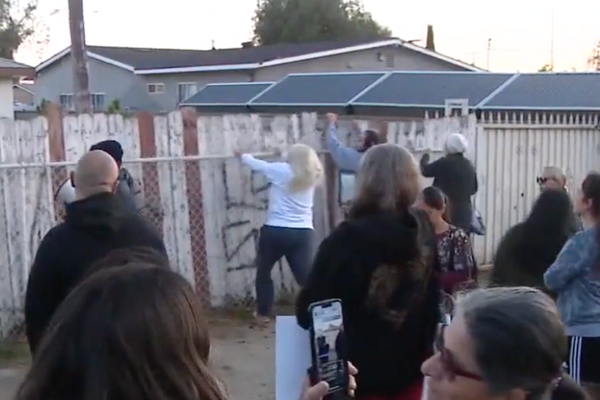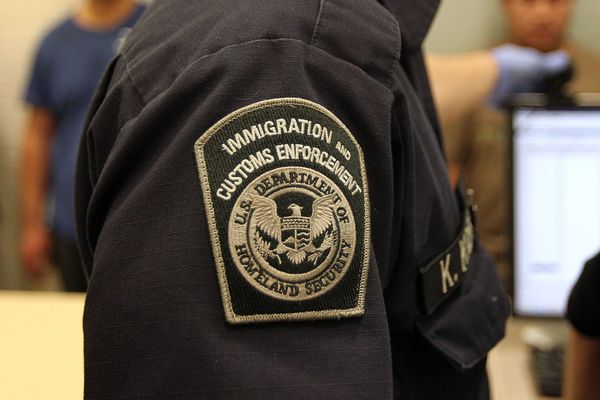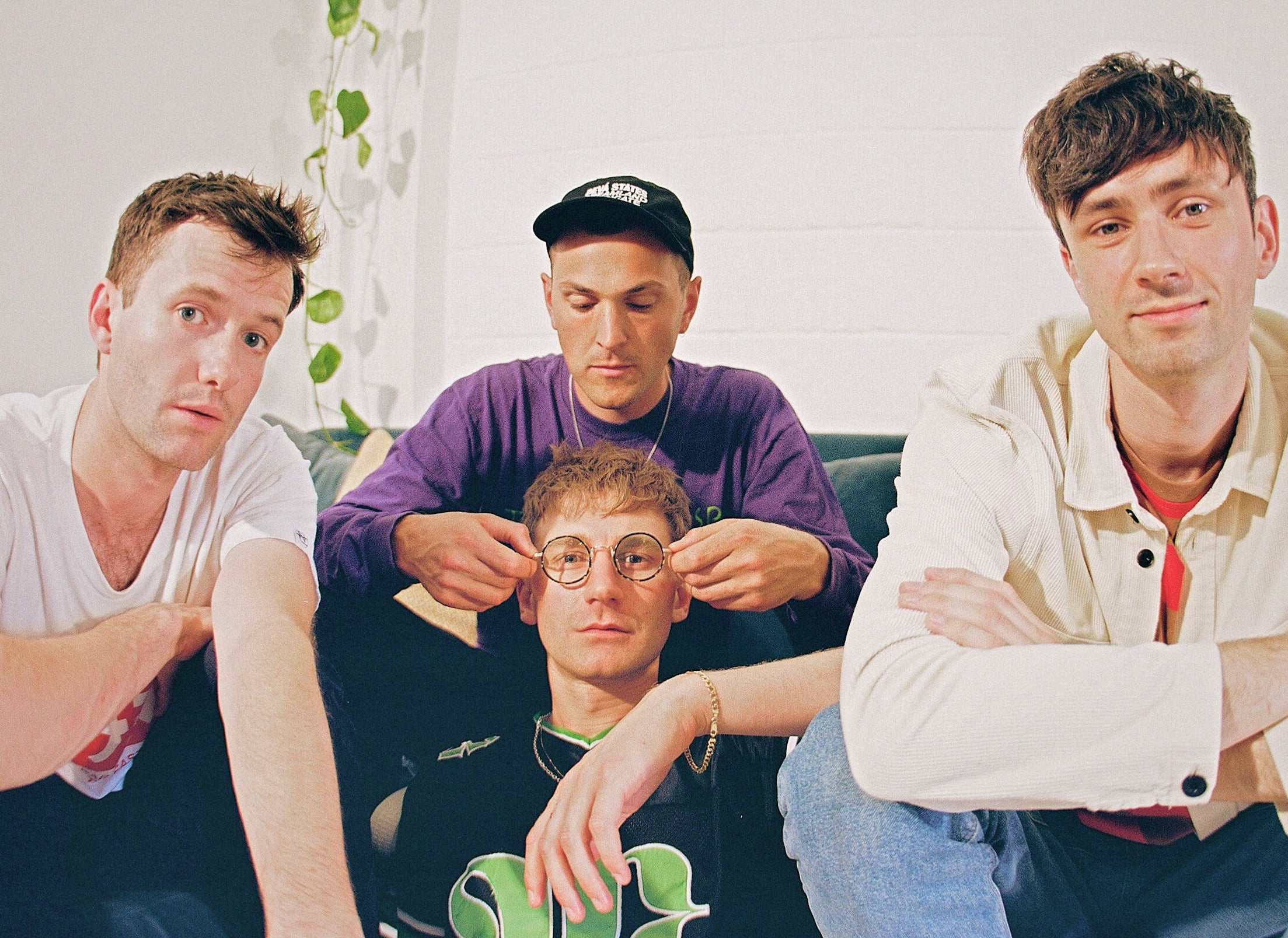
Two years ago, Glass Animals drummer Joe Seaward suffered a complex skull fracture in a cycling accident in Dublin, and had to undergo neurosurgery. He’s since made a full (astonishing) recovery. But for singer Dave Bayley, at his hospital bedside, it was a struggle to be as optimistic as Seaward’s other friends and family. He’d studied neuroscience at university, and knew how serious his bandmate’s injuries were.
“I was stuck in this mentality where the future looked really s***,” the 31-year-old says. He and Seaward were childhood pals, who’d formed the psych-pop band in Oxford with their friends Ed Irwin-Singer and Drew McFarlane.
“I didn’t know if Joe was going to survive, or recover,” he continues. “In a time like that, all you can seem to do is start thinking about the past.” He compares it to peeling off a band-aid – once he’d taken one off, more followed. The memories that resurfaced in this time are what inspired the new Glass Animals album, Dreamland.
I’m talking to Bayley over Zoom from his home studio in Hackney, east London. He moves the camera around to show me the pink walls, lush green plants, and an array of instruments, including the Spanish guitar he bought for £5 at a flea market when he was 17, and still uses.
Compared to its predecessor, the Mercury Prize-shortlisted How to Be a Human Being,Dreamland is autobiographical, shot through with memories of early childhood growing up in the small city of College Station, Texas. It tackles everything from formative relationships to masculinity, in particular the toxic expectations of young boys that Bayley – who is sensitive, emotionally intelligent, and occasionally quite shy – was confronted with. There are glimmering synths that rocket overhead like shooting stars, trippy hip-hop beats, bossa nova rhythms, warped electric guitar lines, the brassy horns of their 2019 track “Tokyo Drifting”, and a fantastic sample of “Deep Shadows” by Sixties Michigan soul singer Little Ann. All of this is interspersed with audio from home movies of Bayley’s youth, augmenting the album’s bittersweet theme of lost innocence.
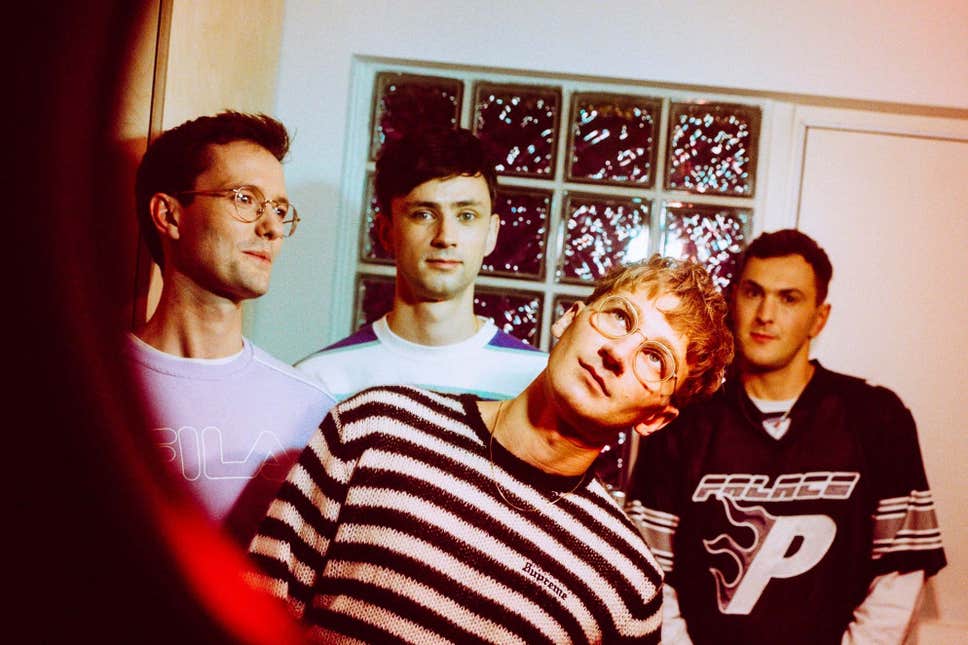
“You don’t realise until later how dark it all is,” he says, of childhood gender stereotyping. “It’s so ingrained – being told to play American football and basketball and hide your feelings, and be this kind of macho superhero. That’s definitely not what I was, and I felt really s****y for not being that.” He addresses this on Dreamland song “Space Ghost Coast to Coast”, about one of his childhood best friends.
“We discovered everything together,” he says. “Dr Dre, Eminem... we used to pull up the aerial on our boombox to catch different radio stations.” When Bayley moved to England, aged 13, he and his friend drifted apart. Some time later, he heard the news that the friend had been caught trying to bring a gun into a local school. “The world can change people in ways you never thought were possible,” he says. “We need to start challenging that. It’s f***ing dangerous.” In the song, you hear Bayley grasping for ideas as to what would cause the person he once knew (“We were just two Texas toddlers/ Pokémon, bottle rockets”) to do something like that: “Were you bored of gender norms?/ Of being alone, no mama home/ A bad divorce, or sad we can’t/ Afford the clothes our heroes own?” In his breathy, trilling vocal delivery is a simmering anger, born from an intrinsic need to fathom the unfathomable.
“They’re a better person now,” Bayley tells me. “It’s a rare story – they’ve rebuilt their life.” In America, he points out, citizens who committed crimes as minors can apply to have their records expunged: “It’s probably a good thing to do, at least in this case,” he says. “He’s a new person as far as I know.” Have they talked since? “No. It’s weird, we were so close. And it’s hard to believe someone you knew that well could move so far from who they used to be. But at that age you’re like a sponge, and dark stuff, like fake news, gets in. You absorb it.”
At the beginning of this year and with Seaward fully recovered, the band had just set out on a tour to kick off their new album campaign, when the coronavirus pandemic took hold. They found themselves backstage at a gig in LA, being informed by a nervous manager that this would probably be their last show for some time. “It was mad,” Bayley says. “We threw everything in the back of a truck – I think it’s in Nashville now.” The band have been finding new ways to entertain their fans; Bayley and McFarlane recently performed the single “Heat Waves” on a street corner in Hackney. It was only when they got shooed away by police that they realised they’d missed the “no amplified live music” sign, posted next to the giant billboard promoting their album.
“It’s been interesting,” he says, of how the music industry has been forced to adapt. “The landscape has flattened and you can kind of do whatever. There aren’t really any rules.” Bayley, who in our first interview in 2016 admitted that he had difficulty talking about personal matters, has evolved too. It started with the song “Agnes” – about a friend who took their own life after struggling with addiction – which closed the last record. It remains their most viscerally emotional track to date, so much so that they rarely perform it at live shows.
“Writing that song opened the door to this album,” Bayley says. “But playing it live was never easy to begin with. The saving grace was latching on to the optimistic side of the song, the good memories, then holding on for dear life and hoping that you get through the performance.” It was the band’s label, Republic Records, which persuaded him to include it on How to Be a Human Being. “I realised they were right,” he says, “because my favourite songs are usually the ones that are incredibly personal. And they make you feel less alone.”
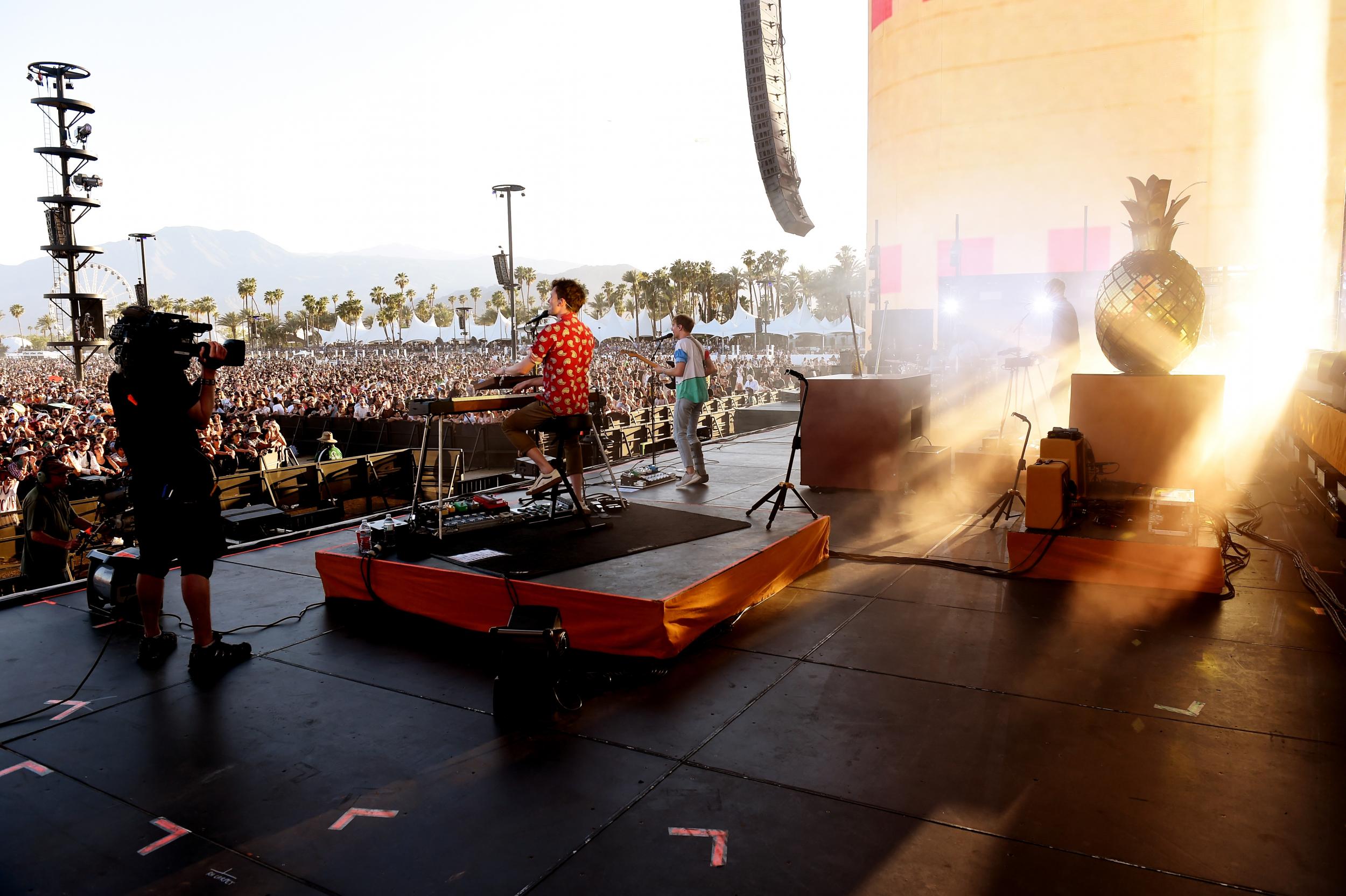
That said, there are other tracks to which fans will likely devote some time attempting to decode. Initially presented as the narrative of a relationship, “Helium” touches on themes of guilt and sexuality, but also how “your foundations are going to get f***ed up as you get older”. “I guess I wanted you more than I thought I did”, Bayley sings, with both regret and reflection.
“It’s meant to be vague enough that you interpret it as a relationship, those awkward fumblings at the beginning,” he says. “That reflects so much on life in general. No one has any bloody idea what they’re doing. [The song] starts with timidness and insecurity, and the end is saying ‘That’s OK. Do what you can with it.’”
Dreamland is out on Friday 7 August



